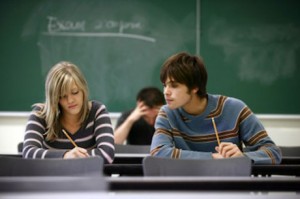In the 21st century almost every student is ill! An epidemic of students’ cheating in education throughout the world is expanding at a frantic pace. All around the world, many children now perceive cheating as integral part of a quiz, test, or exam. A particular form of cheating, plagiarism – using other people’s ideas without proper acknowledgement, is also very common. “Statistics shows that only 5% of students prefer writing their own original works, while the other 97% more or less often plagiarize other works” (Dr. Scott Hamilton). In the U.S., plagiarism is a serious matter. Students who commit plagiarism may get 0 for their assignment, fail a course, or even get expelled from their school.
There are ways to avoid plagiarism. Here are some that may be useful for students, especially those who are not familiar with the U.S. education system.
- cite, paraphrase, quote, or reference any words, phrases or sentences that have been said by someone
- write from your notes of the main ideas instead of copying and pasting from your readings
- ask your instructor to understand what is acceptable
- go to the library to learn about how to cite sources
- go to the writing center at your university to receive feedback on your assignment
In conclusion, continued cheating will lead to intellectual and moral degradation of individuals and even the decline of nations. If cheating and low educational standards are tolerated, the intellectual level of future educators, doctors, engineers, and other professions will decrease.

